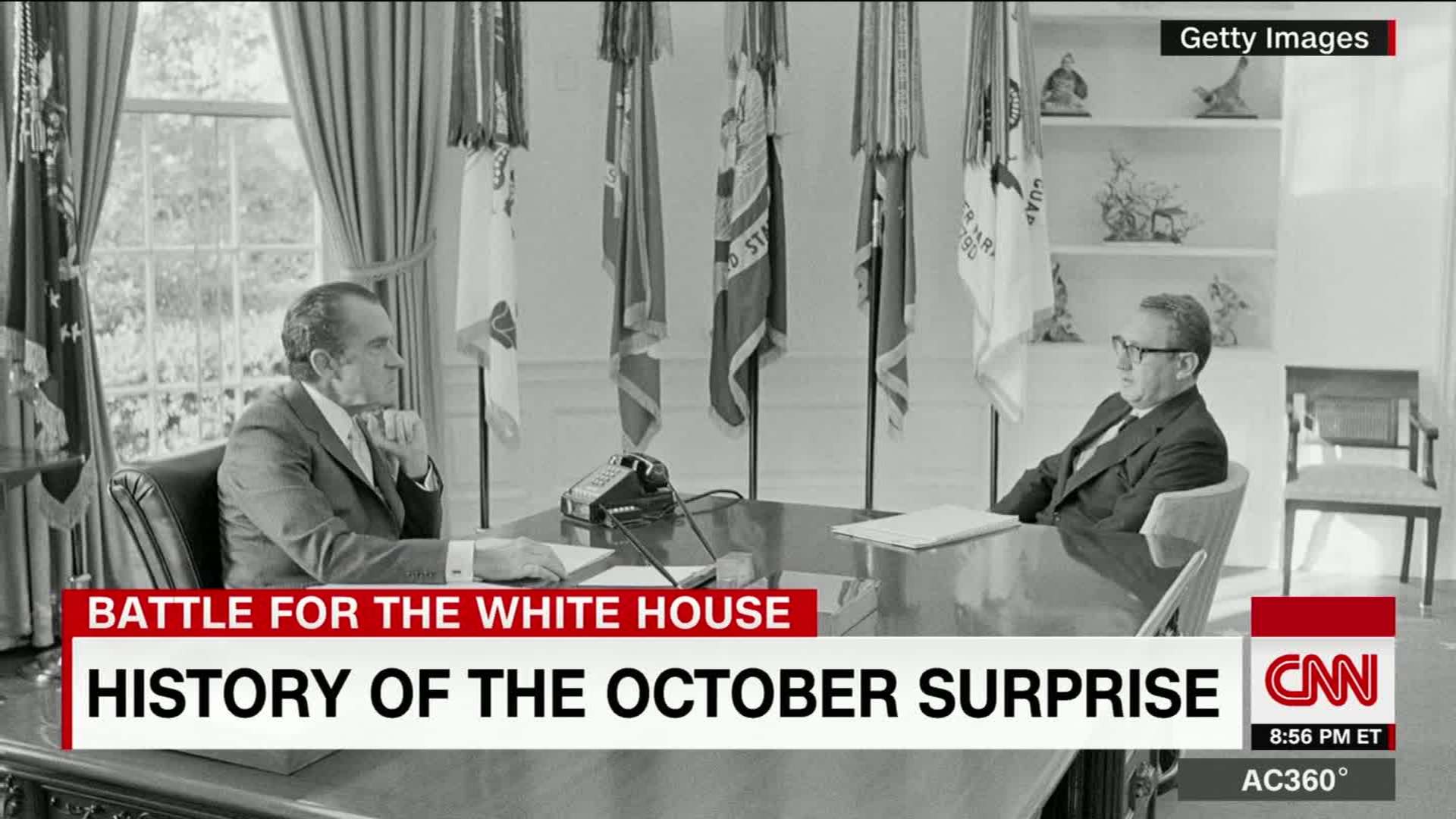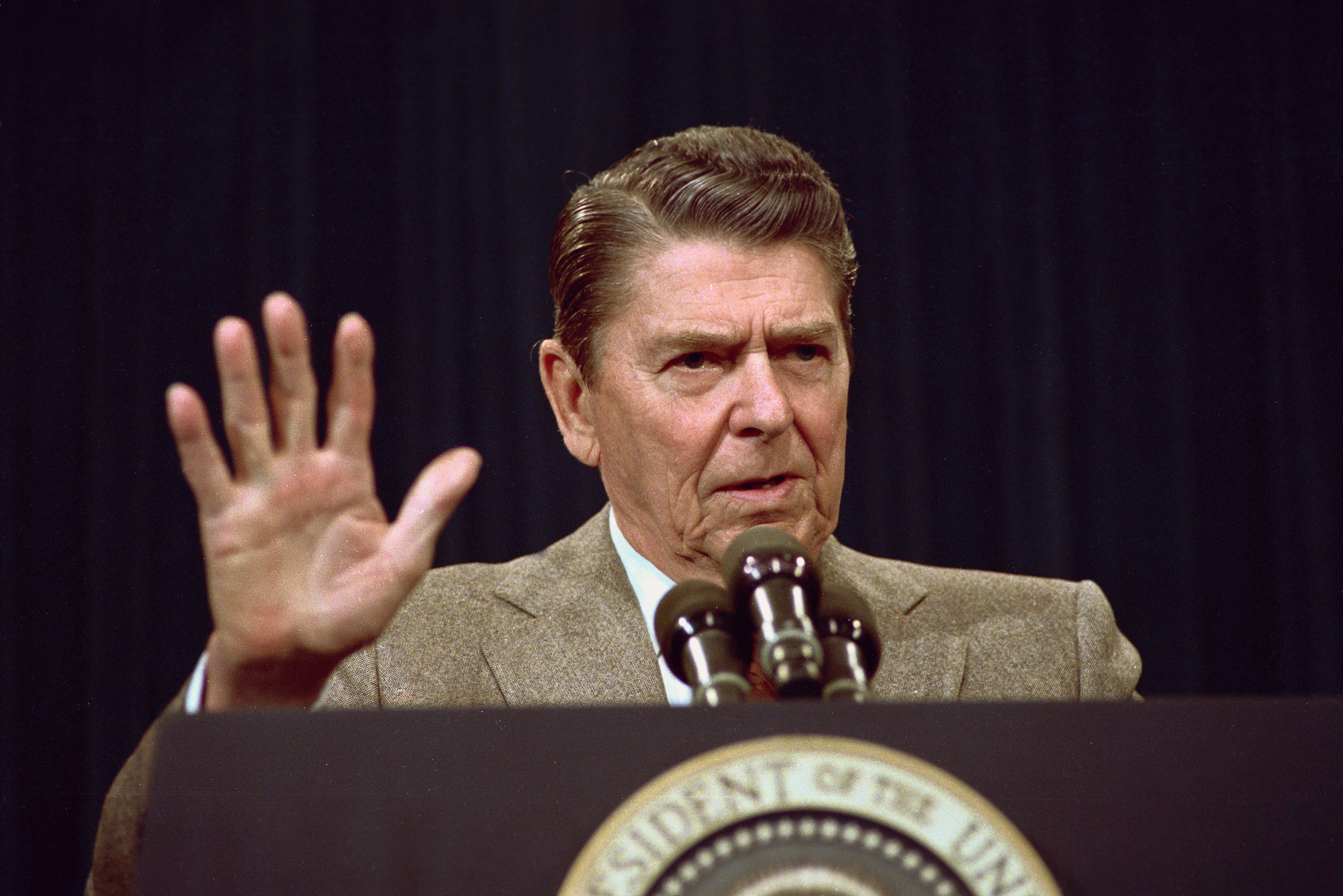The October Surprise Iran: Unraveling A Decades-Old Political Mystery
Table of Contents
- The Genesis of a Crisis: The Iran Hostage Drama
- Defining the "October Surprise"
- The Core Allegation: Reagan's Secret Deal
- Investigating the Claims: Congressional Inquiries
- The Evidence and Lack Thereof
- Why the Theory Persists
- The Legacy and Impact of the October Surprise
- Conclusion
The Genesis of a Crisis: The Iran Hostage Drama
The backdrop to the original "October Surprise" is the harrowing Iran Hostage Crisis, a defining event of the late 20th century. In November 1979, a number of U.S. hostages were captured in Iran during the Iranian Revolution. This dramatic seizure of the American Embassy in Tehran by radical students, following the overthrow of the U.S.-backed Shah and the establishment of the Islamic Republic, plunged the United States into a prolonged period of national anxiety. The Iran Hostage Crisis continued into 1980, casting a long shadow over President Jimmy Carter's administration and his re-election prospects.The November 1979 Seizure
The taking of 52 American diplomats and citizens was an unprecedented act, a direct challenge to U.S. sovereignty and international law. For 444 days, the world watched as negotiations faltered, rescue attempts failed, and the hostages remained captive. This prolonged ordeal became a symbol of American perceived weakness on the global stage, a narrative that Ronald Reagan, Carter's Republican opponent, skillfully leveraged in his campaign. The crisis consumed the last year of the Carter presidency, contributing significantly to a perception of weakness and an inability to resolve the situation.Carter's Dilemma
President Carter faced an impossible situation. Any military action risked the lives of the hostages and could escalate into a wider conflict. Diplomatic efforts were painstakingly slow and often fruitless, complicated by the revolutionary nature of the new Iranian government. The pressure mounted as the 1980 presidential election drew closer, with the release of the hostages becoming a de facto barometer of Carter's leadership. The Iranian hostage drama made the expression "October Surprise" famous, though the term itself had been used earlier in different contexts, referring to any last-minute event that could swing an election. In the fall of 1980, for instance, Jack Anderson wrote an article in the Washington Post about a possible October Surprise, in which he alleged that the Carter administration was preparing a major military operation in Iran for rescuing U.S. hostages, highlighting how the term was already in the political lexicon.Defining the "October Surprise"
The term "October Surprise" first became widely used in reference to efforts to win the release of the 52 American hostages incarcerated at the American Embassy in Tehran. However, the original "October Surprise" that captured the public's imagination, and which remains a subject of intense debate, refers specifically to the allegations surrounding the 1980 presidential election. The October Surprise conspiracy theory holds that in October 1980, Ronald Reagan's campaign conspired with the Islamic Republic of Iran to beat Jimmy Carter in the U.S. presidential elections on November 4. The charge is that Ronald Reagan, Carter’s Republican opponent, made a secret deal with the new, fundamentalist Iranian government to delay releasing the American hostages held in the wake of the revolution that brought it to power. The dramatic timing of the hostages' release fueled these suspicions: they were freed mere minutes after President Ronald Reagan’s inauguration in January 1981. Political observers and journalists immediately noted the uncanny timing, giving rise to the persistent allegations.The Core Allegation: Reagan's Secret Deal
The whole saga is lengthy and convoluted, but the core allegation is this: that in the middle of the Iran Hostage Crisis, Reagan’s campaign team secretly negotiated with Iranian officials to delay the release of the hostages until after the election. This alleged back-channel dealing would have deprived President Carter of a potential pre-election "October Surprise" — the triumphant return of the hostages — which might have salvaged his re-election chances. Instead, the narrative suggests, the delay served Reagan's interests, portraying Carter as ineffective and unable to resolve the crisis.William Casey's Alleged Role
The alleged linchpin of the October Surprise was William Casey, Reagan’s campaign manager through most of 1980. Casey, who later became Reagan's Director of Central Intelligence, had a background in intelligence, having been the head of secret intelligence for Europe in the Office of Strategic Services (OSS) during World War II. Critics and proponents of the theory point to his extensive intelligence contacts and his alleged clandestine trips to Europe, particularly Paris, in the fall of 1980, where secret meetings with Iranian representatives are said to have taken place. These meetings, if they occurred, would have been the venue for striking the alleged deal. Subsequent allegations surfaced against Reagan, alleging that his team had indeed engaged in such activities.Investigating the Claims: Congressional Inquiries
The persistence of the October Surprise allegations eventually led to formal investigations. In the early 1990s, after years of public debate and journalistic probes, the U.S. Congress launched its own inquiries. One significant effort was formally named the Task Force of the Committee on Foreign Affairs to investigate certain allegations concerning the holding of Americans as hostages by Iran in 1980. These investigations, while extensive, ultimately concluded that there was no credible evidence to support the claims of a secret deal. However, the findings did little to quell the suspicions of many who believed that a deeper truth remained hidden. Prominent journalists and former officials, such as Gary Sick, a former National Security Council aide under Carter, continued to publish books and articles presenting what they believed was compelling circumstantial evidence. Sick's November 1991 book, *October Surprise: America's Hostages in Iran and the Election of Ronald Reagan*, became a seminal text for those who believed the theory. For many, the official investigations were seen as insufficient, or even as part of a cover-up.The Evidence and Lack Thereof
The challenge in proving or disproving the October Surprise lies in the nature of covert operations. By definition, such deals would be conducted in secrecy, leaving little to no verifiable paper trail. Proponents of the theory often cite: * **The Timing of the Release:** The immediate release of the hostages upon Reagan's inauguration is the most striking piece of circumstantial evidence. * **Eyewitness Accounts:** Several individuals, including former Iranian officials and arms dealers, have claimed to have knowledge of or direct involvement in the alleged negotiations. However, the credibility of these witnesses has often been questioned, with some recanting their stories or being deemed unreliable. * **Circumstantial Evidence:** Alleged travel records of William Casey and other Reagan campaign officials to locations where secret meetings supposedly took place. * **Motivations:** The clear political motivation for Reagan's campaign to prevent an "October Surprise" by Carter, and Iran's potential motivation to deal with a new administration that might be more amenable to arms sales or financial transfers. Conversely, the official investigations, particularly those conducted by the House and Senate, found no conclusive evidence. They interviewed hundreds of witnesses, reviewed thousands of documents, and explored various leads. Their conclusions pointed to the absence of direct proof of a conspiracy. Critics of the theory often highlight: * **Lack of Concrete Proof:** No definitive documents, recordings, or irrefutable testimonies have ever emerged. * **Inconsistencies in Witness Accounts:** Many "eyewitness" testimonies have been contradictory, unreliable, or later retracted. * **Plausible Deniability:** The complexity of the hostage negotiations themselves, involving multiple factions within Iran, could explain the delays without needing a secret deal. Despite the official dismissals, the idea that something untoward occurred continues to resonate. As one source notes, "A short history of everyone who confirmed Reagan’s October Surprise before the New York Times" suggests a persistent stream of allegations from various quarters, even if not officially substantiated. Robert Parry, a prominent investigative journalist, dedicated much of his career to pursuing the truth behind the October Surprise, reporting that "Iran divided & the 'October Surprise' today's divisions in Iran's leadership date back to secret decisions made to influence a U.S. election in 1980." This highlights the enduring belief among some that the conspiracy had far-reaching consequences, even within Iran.Why the Theory Persists
The October Surprise theory has proven remarkably resilient, long dismissed as a conspiracy theory by many, yet continuously revived by others. Several factors contribute to its enduring appeal: * **The Dramatic Coincidence:** The timing of the hostage release remains undeniably striking. It’s a fact that is hard to ignore, regardless of whether a conspiracy is believed. * **Mistrust of Government:** A general skepticism towards official narratives and a belief that powerful figures operate outside public view fuels many conspiracy theories. The idea that a presidential campaign would engage in such a clandestine act, even if unproven, fits into a broader narrative of political cynicism. * **Lack of Definitive Closure:** Despite congressional investigations, the absence of a universally accepted, definitive explanation for the timing of the release leaves a void that the October Surprise theory fills for many. * **Political Motivation:** The theory serves as a powerful narrative for those who view Reagan's presidency critically or who believe in the deep-seated corruption of the political system. It suggests a fundamental injustice that altered the course of history. * **The Nature of Intelligence:** Covert operations are designed to be untraceable. The very difficulty of proving the October Surprise makes it harder to definitively disprove, as proponents can always argue that the evidence is simply too well hidden.The Legacy and Impact of the October Surprise
The original October Surprise continues to be a point of contention, a historical footnote for some, and a profound betrayal for others. Its legacy extends beyond the 1980 election, influencing how subsequent political events are viewed and labeled. The term "October Surprise" itself has become a common phrase in American political discourse, used to describe any significant, last-minute event that could influence an election. For instance, recent news has suggested that "Israel and Iran have just delivered this election’s October Surprise, and Trump may be the beneficiary," illustrating how the phrase remains relevant in contemporary political analysis.Modern Echoes and Political Strategy
The concept of an "October Surprise" highlights the vulnerability of elections to external events and the strategic importance of timing in politics. Campaigns constantly fear or hope for such a development, understanding its potential to sway undecided voters. The 1980 incident, whether true or not, serves as a cautionary tale about the potential for foreign policy and national security issues to become deeply politicized, with profound implications for democratic processes. It underscores the high stakes involved in presidential elections and the intense pressure on candidates and their teams.Conclusion
The October Surprise Iran remains one of the most enduring and debated political mysteries in modern American history. At question is the 1980 presidential election between Ronald Reagan and Jimmy Carter, specifically the "October Surprise" that is alleged to have handed Reagan the election. While official investigations have largely dismissed it as a conspiracy theory due to a lack of concrete evidence, the compelling circumstantial factors and the persistent efforts of journalists and researchers like Robert Parry and Gary Sick ensure that the debate continues. Whether a meticulously planned covert operation or merely an unfortunate confluence of events, the story of the October Surprise serves as a potent reminder of the complexities of international relations, the high stakes of presidential politics, and the enduring human fascination with hidden truths. It invites us to consider the fine line between political maneuvering and alleged back-channel dealings that could fundamentally alter democratic outcomes. What are your thoughts on the October Surprise? Do you believe there was a secret deal, or was it merely a remarkable coincidence? Share your perspectives in the comments below, and explore more of our articles on historical political events and their lasting impact.- America And Iran News
- Number Of Jews In Iran
- Iran Country Images
- White Revolution In Iran
- Iran News Usa

October Surprise - Political Dictionary

Iran-Contra, October Surprise and Reagan's Wrongs

Ramadan surprise, Iran Stock Photo - Alamy